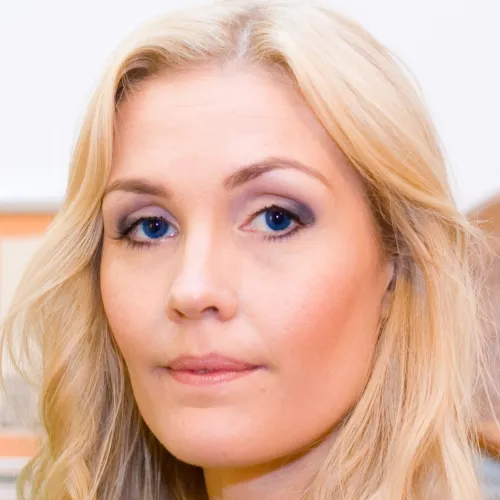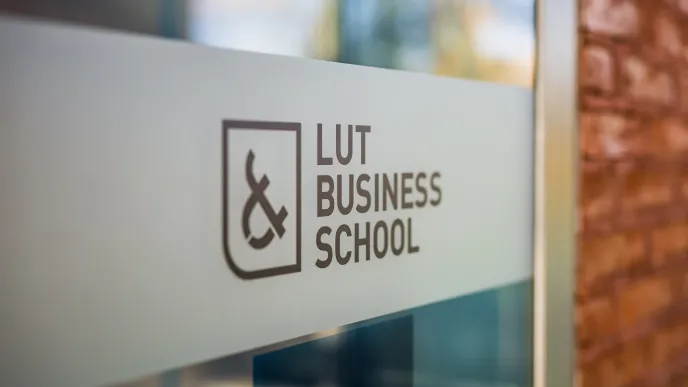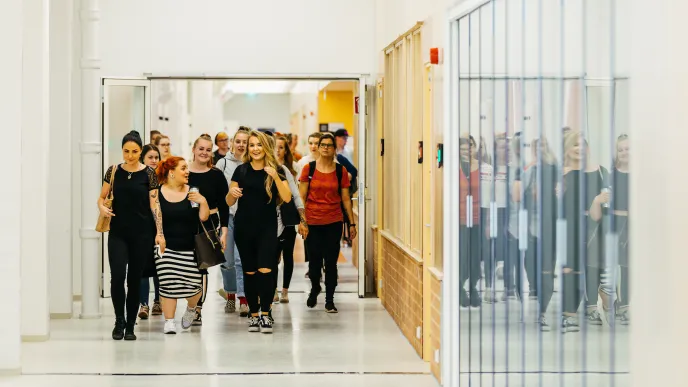1. Which subjects in communication sciences are particularly topical right now?
In the field of global communications, rapidly rising interests are, for example, strategic societal communication, and the usage and influence of AI for both production and detection of propaganda and disinformation.
An important and topical subject is the role of global communication sciences in climate change and green transition. For example, our new MSc programme (starting 2024) is centred on global communications and clean water, air, and energy, as LUT University is a forerunner in these matters.
2. What are you currently working with?
On many projects, for example on ideology and on propaganda in the context of AI.
3. How did you end up leading an academic career?
I am captivated by new knowledge and constant learning. I have always been curious to learn more and thus ended up in academia. It was not a conscious choice or ambition; I was just always doing what I was interested in, following my passion, and it led me to academia.
4. What things do you enjoy most about your job? And what things would you like to change?
Academic life offers endless opportunities to learn in an interdisciplinary environment and to work with extraordinarily talented people, both staff and students. It offers the opportunity to be at the heart of cutting-edge research that can have global impact and significant long-term effects. I just wish there were more hours in the day.
5. What is your greatest career accomplishment so far?
I believe it is for the others in the academic community and society to evaluate whether my work and research make any difference and if, what kind of difference.
It has been an enormous pleasure to become a member of the global academic community, as it takes years of working together with international colleagues to build a global network. I'm currently a Visiting Professor at the London School of Economics and Political Science, Department of Media and Communications, and a visiting fellow at Clare Hall College, University of Cambridge and research fellow (honorary appointment) at University of Cambridge. These appointments offer excellent opportunities for international everyday co-operation.
6. If anything was possible, what would you like to study, and what kind of ambitions do you have for your career?
I read and study as much as possible and as widely as possible, I believe that to be able to try to tackle the grand challenges and to have any foresight on global matters, one should drive to be exceedingly well-read and interdisciplinary and have a global perspective.
In recent years, I have read particularly about neuroscience, South Korea, AI, healthcare and pharmaceutical industry, climate change and geopolitics, in addition to the more traditional global communication topics and journals. Currently, I find, for example, the development of new space technologies to solve some of the global challenges a very interesting path for the future.
7. Who or what inspired you last?
I just returned from the States, where I had the pleasure of conducting some research and visiting the libraries. I was reading about propaganda conducted during World War I and World War II and in between. I thought it was highly interesting.
Recent visits to the National Museum of Korean Contemporary History in Seoul and the Korean Demilitarized Zone were also thought-provoking. Also, art museums are inspirational, particularly The MET (The Metropolitan Museum of Art) in New York and The National Gallery in London, but also smaller art exhibitions.
8. How do you balance your work and personal life? How do you recover from work?
Doing what I enjoy actually gives me energy. I typically work long hours.
However, I am very conscious about the latest neuroscience research and try to apply that in my everyday life: I don’t usually sit much, I work standing up and even have a walking pad under my desk, so I can walk whilst writing emails. I try to have some of my meetings and Teams meetings whilst walking outside, as it is more beneficial for thinking and creativity.
More information:





